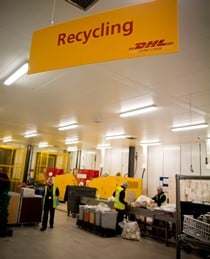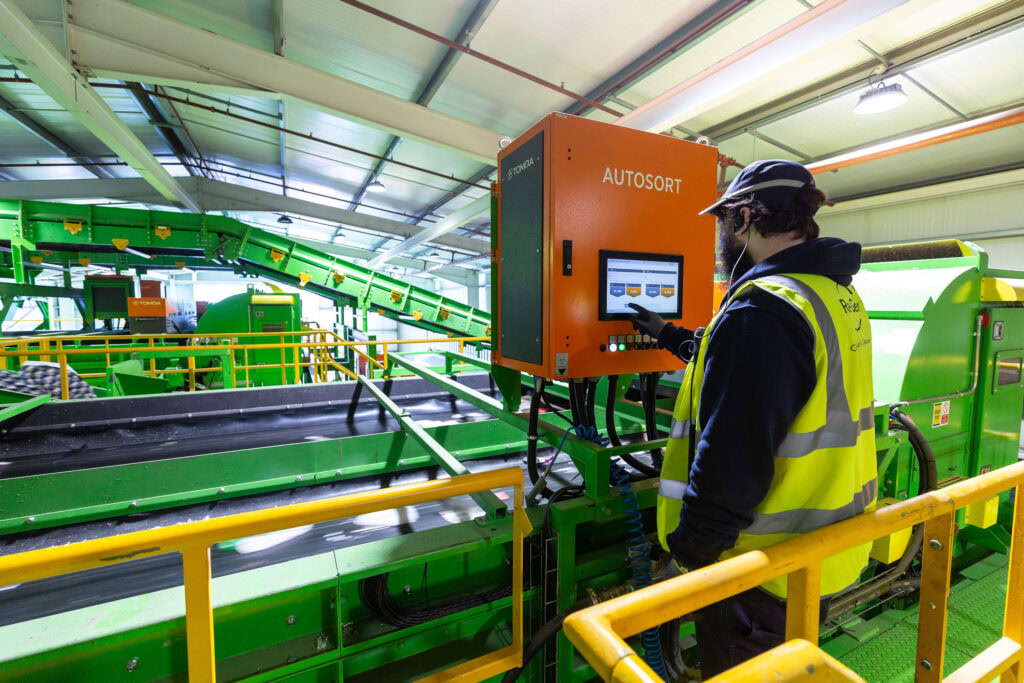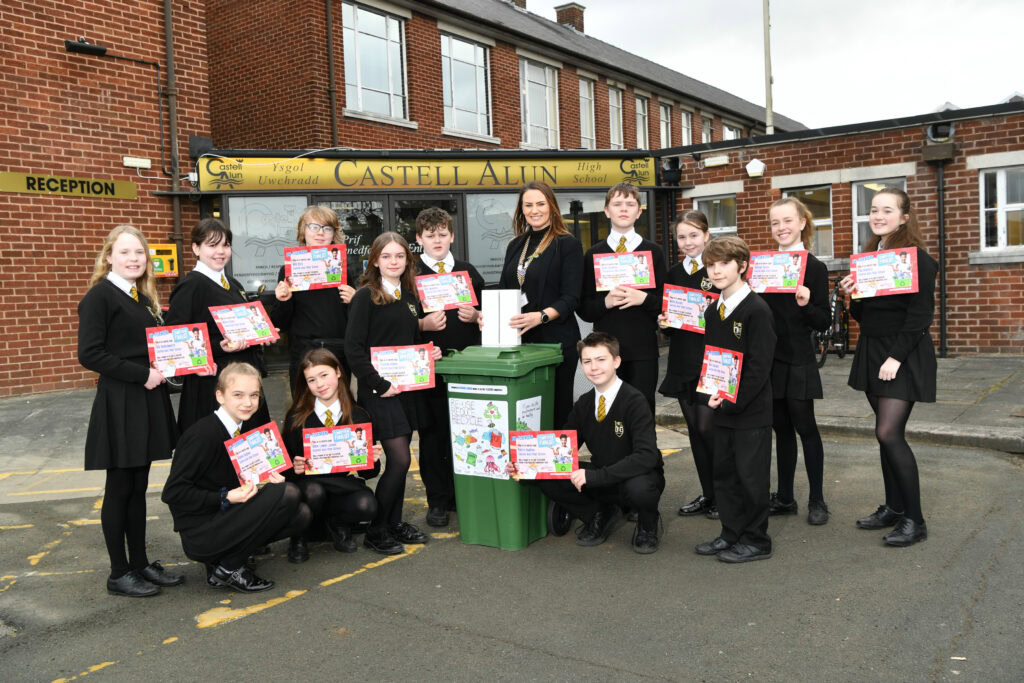As the environmental compliance division of the logistics provider, DHL Envirosolutions is expected to help its customers meet green targets wherever possible. This includes cutting carbon emissions, boosting recycling rates, and keeping tabs on the latest legislation.

Its latest drive, to recycle discarded packaging and materials which have been returned to distribution depots, appears to be working. In 2013, the division recycled 138,000 tonnes of waste material on behalf of its UK customers, cutting the amount of waste sent to landfill from 15% to 10%.
Incentives
Meanwhile, the push has also delivered a financial incentive to customers – with the recycling initiatives responsible for generating £12 million for UK businesses.
“We are a responsible organisation and we have a real drive around the environment”, explains Simon Potter, business director of DHL Envirosolutions. “We cater across all areas of waste prevention and recycling, from segregation of materials through to ensuring our customers’ landfill obligations are fulfilled. Increasingly our customers are realising environmental targets, and in time we hope they will all be zero waste to landfill.”
The measures put in place to achieve this recycling boost revolve around the mini materials recycling facilities that are housed on-site at client distribution centres. Recycling and reuse programmes, as well as new technologies such as bespoke mini-balers and biomass-fuelled machinery, helps DHL meet the needs of its customers.
Nisa
For instance, DHL has worked with retail giant Nisa to install recycling centres at all its depots for processing plastics and packaging retrieved from its members.
The scheme – which is part of the joint ‘Go Green’ project aiming to reduce waste, carbon emissions, energy usage and noise pollution – was initially trialled by 100 stores within the M25 area in London. As a result, some of Nisa’s members have saved an estimated £3,000 in landfill disposal costs.
Mr Potter continues: “It’s competitive and there’s a real drive for people to do a bit more, and some of our customers may be incentivised by how green another organisation is.
“There are a lot of challenges that our customers are facing, it’s a complex sector. They look to us to give them ideas. We are absolutely dedicated to making a real difference, we are sending less to landfill and are moving materials that were considered to be waste a couple of years ago.”
[testimonial id = “48” align=”right”]
DHL Envirosolutions now processes approximately 15 different waste streams, including food waste from pubs, restaurants and the catering industry that is used to power the vehicles. Around 50% of waste managed on behalf of DHL is electrical and electronic waste (WEEE), which Mr Potter claims can generate significant revenue if managed effectively.
Elsewhere, the company has worked to cut mileage and emissions through backhauling, delivering materials to a customer’s premise and returning items to the distribution centre in one journey, thereby limiting the number of other vehicles’ that need to be on the road. Mr Potter insists that this doesn’t remove ‘competitors from the road’, as it will share routes where one journey makes logistical and environmental sense.
Ambitions
Mr Potter is also keen to emphasise that the success of its recycling schemes will not see DHL expand into direct waste management activities. He says that, for now, there are no ambitions for the logistics company to create its own ‘waste empire’, but concedes there is a growing market within its own client base.
“It’s a difficult one”, he says. “A lot of our solutions are customer led rather than DHL doing it, although we have helped by making investments in the infrastructure. We are not seeking to replace existing business in that [the waste] sector.”
He adds: “We may invest in a particular solution, and we plan to operate in this sector for a long time. We hope to see the DHL supply chain featuring in their contracts.”
But how does DHL intend to factor in immediate changes to the waste industry, such as new TEEP regulations due in 2015? Mr Potter is confident that its customer base have been well versed in what to expect.
“It’s something we are well prepared for. The solutions we put in place promote early segregation of recyclables. We are very well positioned for that type of activity,” he adds. “We are trying to raise waste in terms of understanding and appreciation, this is very much part of the DHL supply chain.”










Subscribe for free